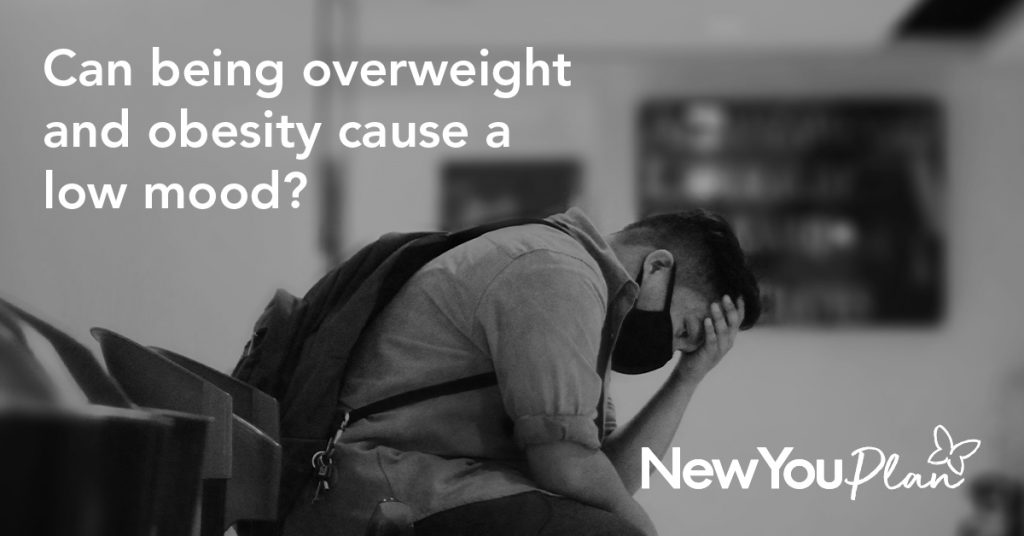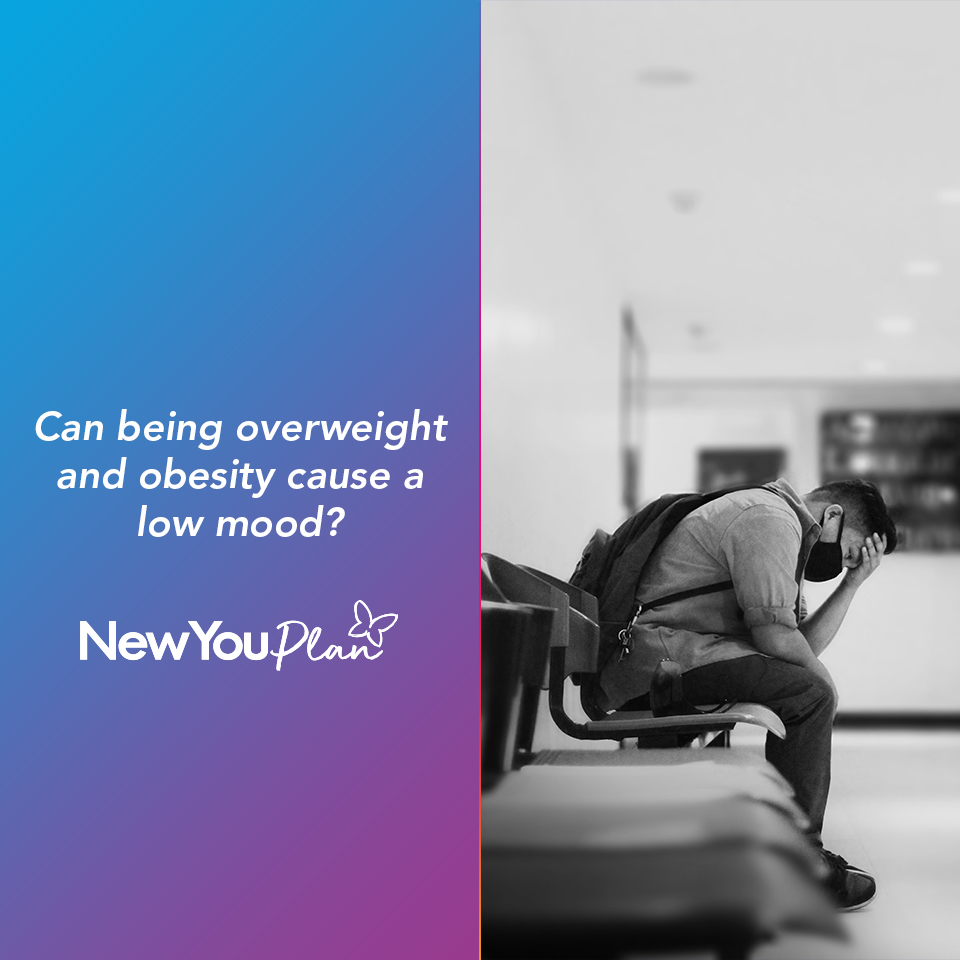
What’s The Real Relationship Between Mood & Weight?
There is so much information floating about on the internet nowadays. It bombards us constantly, whether we like it or not. So when you’re trying to find the answers to more complex questions the information can often be conflicting leaving you confused and unable to sift the facts out of the fiction.
To help you overcome this, we thought we would help to answer one of the most common questions that we get asked:
Is there a relationship between mood disorders such as depression and weight gain?
To answer this we picked the brain of our resident dietitian, Ro. Read below to find out what she said.
What is the relationship between mood and weight?
There is a relationship between our mood and weight with research telling us that mood disorders, such as depression, are often co-occurring with overweight and obesity (1,2). Studies have found a reciprocal link between obesity and depression, with obesity being associated with an increased risk of depression; and on the flip side, depression being associated with an increased risk of developing obesity (3).
Why can mood disorders cause weight gain?
For people with conditions of low mood, weight gain may be promoted by unhealthy eating patterns and by reduced physical activity, which may be a consequence of feeling tired due to depression itself or due to side effects of medication (4,5,6). Some antidepressant medications can also contribute to weight gain, due to their effect on serotonin receptors which can reduce feelings of fullness and also increase appetite and cravings (6,7). If you have concerns that medication is affecting your weight, it is best to seek advice from your doctor as there may be an alternative: do not stop taking the medication without medical advice.
In some instances people may self-medicate with large amounts of high calorie “comfort foods” when they are feeling low or stressed which can, in the short-term, make them feel better; however, in the long term, this can negatively affect weight (7). Eating highly palatable foods can decrease the feeling of stress by activating the reward centres in the brain, this may play a role in reinforcing subsequent eating of pleasurable foods when low mood or stressful emotions are felt as we know it will make us feel better.
Why is it carbohydrates that are often craved?
Carbohydrates are often the foods we turn to when feeling low. This is because they can actually help to improve mood. Carbohydrates have an ability to temporarily improve mood – which may be due to increased production and release of the “feel-good” hormone called serotonin (12). Temporary carbohydrate cravings do not always result in weight gain, especially when calorie intake is not continually elevated over a prolonged period of time. Opting for whole-grain carbohydrates can help us to feel fuller for longer and can help with weight control.

Can being overweight and obesity cause a low mood?
On the flip side, being of a higher weight may also contribute to an increased risk of depression and low mood. This is because the excess weight may result in a negative body image, self-esteem and also reduced social interactions (5,6). All of these factors can contribute to low mood.
How to manage mood-related weight gain
- Stress management – Having techniques in place to reduce stress and anxiety can help reduce eating in response to our emotions and the cravings for comfort type foods when we feel this way (13). Stress management strategies that you could try include delegating and breaking down large tasks, planning ahead, daily gratitude, talking to someone, increasing activity and breathing exercises. It’s about finding a strategy that works for you.
- Managing cravings – If you find yourself craving comfort foods, you don’t need to avoid these completely, For example, you can portion out your carbohydrates and aim for whole-grain carbohydrates which can keep us feeling fuller for longer (whole-wheat bread, pasta and grains etc.) instead of simple carbohydrates which can be found in sugary drinks, sweets, cakes etc.
- Practice self-care – Self-care can help with maintaining well-being and being able to deal with daily stresses – it’s not all about luxuries and ensures that your needs are met, this can include eating a healthy diet, exercising, relaxation, sleeping well and doing things that make you feel happy.
- Regular exercise – Exercise is beneficial for maintaining and losing weight. Moreover, exercise can help to improve mood by increasing the “feel good” hormones called endorphins (14). Just a small walk around the block could make a difference.
- Sleep – Getting enough sleep is important for mood as well as for weight control. Depression and sleep issues can contribute to one another (15). Sleep loss can also affect our hunger hormones and our metabolism playing a role in overeating and weight gain (16). Practising sleep hygiene can be beneficial for both mood and weight.
- Mindfulness – Practicing mindfulness can help to improve our ability to regulate emotions, decrease stress, anxiety and depression. Mindful eating can also be beneficial for stress, anxiety and depression as well as promote a positive relationship with food which can aid with weight management (17).

Summary
- Low mood has the potential to result in changes in our weight.
- Being overweight or obese can contribute to low mood. Equally, low mood can contribute to being overweight or obese.
- Many factors contribute to weight gain in a period of low mood, including increased cravings for “comfort foods”, medications and lower physical activity levels.
- There are ways to manage conditions of low mood which can in turn help with symptoms of low mood and depression as well as help you control your weight.
It’s great to have a better understanding of the relationship between mood disorders and weight gain and vice versa. Although it may seem that you’re damned if you do and damned if you don’t, Ro has given you some excellent advice on self-care – which everyone should be making time for regardless of health. If you put some of these tips in place it will help to safeguard your mental and physical health. Why not start with improving your sleep – we could all do with some extra of that!
If you found Ro’s blog helpful, check out more from her on our website.
For any other support that you need throughout your transformation journey, you can join our Secret Slimmer’s Facebook community or contact our friendly customer service team.





